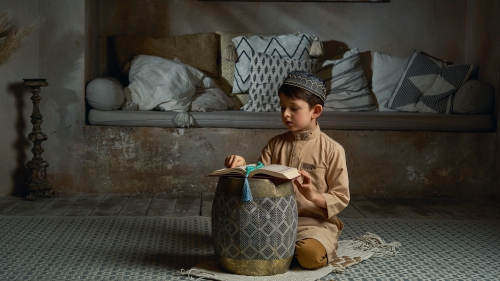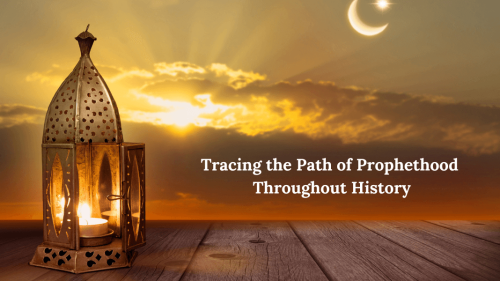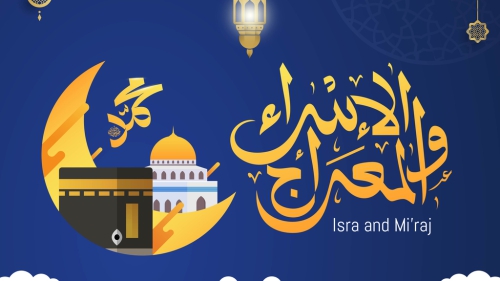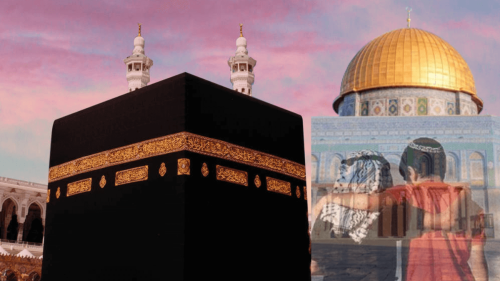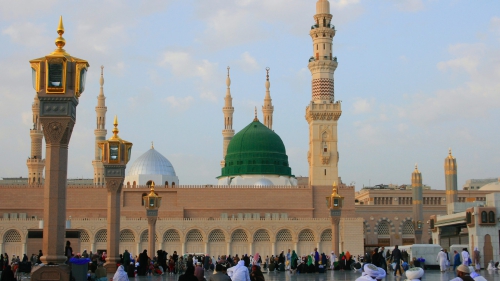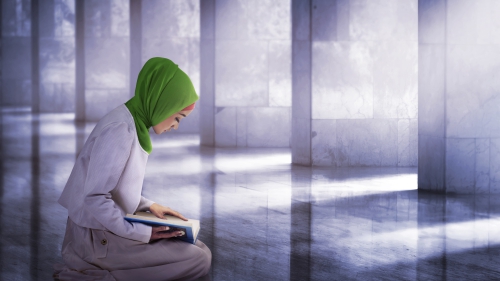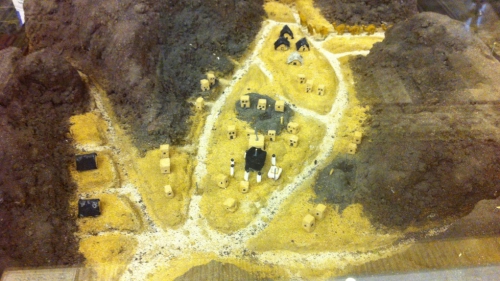A Panacea Called "Istighfar"

The Quran states: “And Seek forgiveness of Allah. Indeed Allah is Forgiving and Merciful” (73:20)
It is from the wisdom of Allah that He created mankind as being prone to mistakes, errors, lapses, sins and acts of disobedience to Him. Given this nature of mankind, it is only befitting the Merciful attribute of Allah that He chooses to forgive them, whenever such sinners seek His forgiveness and repent to Him. It is also from His vast Mercy that He not only chooses to delay His punishment of the sinners but also promises forgiveness of all sins from such sinners, if they truly turn to Him in repentance. The fact that none can forgive sins except Allah clearly shows the oneness of Allah’s attribute of forgiveness.
While the doors of seeking forgiveness for all the sinners are open till the last breath of the individuals from this mortal world, it is not wise to postpone doing so. Nay, it is prudent to show haste in resorting to seeking forgiveness, as soon as the act of disobedience to the Creator is committed, as Allah says: “And hasten to forgiveness from your Lord and a garden as wide as the heavens and the earth, prepared for the righteous. (3:133)”.
While human beings tend to err, it is the righteous among them that rush to seek forgiveness from their Lord, once they realise the sin and feel a sense of remorse in their heart for having committed the act of disobedience to the One against Whom the sin is committed. Right from the first person to walk the face of earth, our father, Prophet Adam (alaihis salaam) to the final Prophet Muhammad (Peace and Blessings of Allah be upon him), all prophets have constantly not only invoked Allah to seek His forgiveness but also kept advising their respective nations about the need to do so.
When our father, Prophet Adam (alaihis salaam) and his wife ate from the forbidden tree and as soon as they realised their folly, they immediately supplicated to Allah thus: “O Our Lord! We have wronged ourselves and if You do not forgive us and have mercy upon us, we will surely be among the losers.”(7:23)
When Prophet Nooh (alaihis salaam) could not stop asking Allah to protect his son from being drowned in the floods, although he was amongst the disbelievers, Allah reprimanded him for doing so and soon thereafter, he sought forgiveness from His Lord saying: “My Lord! I seek refuge in You from asking that of which I have no knowledge. And unless You forgive me and have mercy upon me, I will be among the losers. (11:47).
He also advised his people thus: “Ask forgiveness of your Lord, Indeed He is ever a Perpetual Forgiver. He will send (rain from) the sky upon you in (continuing) showers, And give you increase in wealth and children and provide for you gardens and provide for you rivers.(71:10-12).”
Hood (alaihis salaam), another great Prophet sent to the people of Aad, advised his people thus: “And O my people, ask forgiveness from your Lord and then repent to Him, He will send you (from the sky) abundant rain and add strength to your strength, so do not turn away as criminals. (11:52).”
If seeking forgiveness from Allah results in getting these material benefits, then what about the immense spiritual benefits that Allah has prepared for His believing slaves? Shouldn’t we show haste in resorting to this wonderful approach to get our aspirations fulfilled and to enhance our chances of our entry to Jannah through it?
Even when Sulaiman (alaihis salaam) supplicated to Allah to bestow him with an authority and kingdom, the like of which was not bestowed upon anyone else earlier, he stated thus: “My Lord, forgive me and grant me a kingdom such as will not belong to anyone after me”. This not only shows the humility of this great Prophet, but it also underlines the need for seeking forgiveness of Allah, even when seeking His bounties in this world.
When Prophet Yoonus (alaihis salaam) was engulfed in the belly of the whale in the depths of the ocean, he called out to His Lord in the pitch of the night : “There is no deity except You, exalted are You. Indeed, I have been among the wrongdoers. (21:87).” What a beautiful prayer! It not only asserts the unequivocal truth of the oneness of Allah and also glorifies him, but also beautifully submits our weakness to Him. After mentioning this supplication of Yoonus (alaihis salaam), Allah concludes this verse thus: “And thus do We save the believers.” This verse gives the greatest hope to the believers, as it promises deliverance from our pains and troubles if we sincerely and wholeheartedly invoke Allah with the same statement that came out from the blessed lips of Yoouns (alaihis salaam). This is why our Prophet ﷺ said: “No Muslim ever prays to his Lord with these words for anything, but He will answer his prayers”. (Tirmidhi).
Among the supplications that Ibraheem (alaihis salaam) made soon after the completion of the building of Ka’ba, on the orders of Allah, is this: “And show us our rites (of worship) and accept our repentance, Indeed, You are the Accepting of Repentance, the Merciful.” (2:128). The fact that even after obeying the command of Allah to build the first house of worship on the face of earth, this great Prophet (alaihis salaam) asked Allah to accept his repentance shows that we need to constantly ask Allah for His forgiveness even when we do righteous deeds due to the shortcomings that will definitely be involved in such deeds.
Another great prophet, Moosa (alaihis salaam) supplicated thus: “My Lord! I have definitely wronged my soul, so forgive me”. (28:16). Moosa (alaihis salam) showed extreme remorse for a deed that he had committed unknowingly and showed haste in seeking forgiveness from Allah.
If this is how the greatest human beings to walk the face of earth besought Allah, then what should be the level at which we human beings, who keep sinning day in and day out, be beseeching Allah for forgiveness in order to be successful in our life in this world and also in the Hereafter? It is then no wonder that our Prophet ﷺ showed us by his exemplary conduct that he sought Allah’s forgiveness a minimum of 100 times a day. This is in spite of the fact that Allah not only forgave all his past and future sins but also attested to it in no ambiguous terms in the Quran.
Allah (SWT) also exhorts us to keep repenting to Him and to seek His forgiveness throughout the various chapters of the Quran. In one such verse, He says thus: “And turn to Allah in repentance, all of you, O believers, you might succeed.” (24:31). From this verse, it becomes clear that seeking forgiveness from Allah not only erases our sins that we commit, but also becomes a means of achieving success in all walks of our life.
Allah also promises protection from His punishment so long as the people do seek His forgiveness. He says in Sura Anfaal,thus: “But Allah would not punish them while you (O Muhammad ﷺ) are with them. And Allah would not punish them while they seek forgiveness.” (10:33). According to Ibn Abbas (radiyallahu anhu), while the shelter from Allah’s punishment through the presence of Prophet ﷺ is closed, the shelter through seeking forgiveness still remains. Is this not a wonderful opportunity to keep ourselves protected from the wrath and anger of Allah, so long as we live in this world? As this verse mentions the protection of Allah from His punishment generally, it can also be extended to mean His protection both in this world and the Hereafter and Allah knows best!
Another beautiful Hadith Qudsi mentions on the authority of Anas (radiyallahu anhu) who said: “ I heard the Messenger of Allah ﷺ say: Allah, the Almighty, has said: O Son of Adam, so long as you call upon Me, I shall forgive you for what you have done and I shall not mind. O son of Adam, were your sins to reach the sky and were you then to ask forgiveness of Me, I would forgive you. O son of Adam, were you to come to Me with sins as great as the earth and were you to face Me, ascribing no partner to Me, I would bring you forgiveness nearly as great as it.” This hadith vividly portrays the vast forgiving attribute of Allah and gives us hope to keep seeking forgiveness irrespective of the quantum of the sins committed, as long as it does not involve ascribing partners in worship to Allah. This hadith also shows us that no sin is too big to be forgiven by Allah and no sin is too small to be committed by His slaves.
Benefits of seeking forgiveness from Allah
- Allah will forgive the sins (Al Quran 73:20)
- Allah will send down abundant rain (Al Quran 71:11)
- Allah will give wealth (Al Quran 71:12)
- Allah will give children to childless couples (Al Quran 71:12)
- Allah will not punish the community (Al Quran 8:33).
There are three requirements for forgiveness from Allah to be accepted:
- Recognising the offence itself and its admission before Allah.
- Making a commitment not to repeat the offence
- Asking for forgiveness from Allah
How to repent from sins and ask Allah’s forgiveness:
- Saying Astaghfirullah 3 times after every obligatory salah.
- This was the first thing the Prophet ﷺ used to do after giving salam. (Sahih Muslim)
- Saying “Rabbighfirlee, Rabbighfirlee” between the two sajdahs in salaah. (Ibn Majah).
- Saying “Allahummaghfirlee, warhamnee, wahdinee, wa aafinee, warzuqnee” between the two sajdahs in salaah.
- This is a comprehensive dua that includes not only seeking forgiveness but also seeking the bounties of this world and the next.(Abu Dawood).
- Asking for Allah’s forgiveness day and night.
- Our Prophet Muhammad ﷺ would seek Allah’s forgiveness more than 70 times a day. (Al Bukhari).
- Weeping out of fear of Allah
- Abu Hurairah (radiyallahu anhu) reported: The Messenger of Allah ﷺ said: “One who weeps out of the fear of Allah will not enter hell till the milk returns back in the udder”.(Tirmidhi).
- Saying Astaghfirullahallathee laa ilaha illaa huwal hayyul qayyoom wa athoobu ilaihi. (I seek the forgiveness of Allah, there is no god except Allah, the Ever-Living, the Self-Subsisting and I turn to Him in repentance). (Abu Dawood).
- Reciting Sayyidul Isthighfar once in the morning and once in the evening daily. (Tirmidhi).
- Saying Subhanallahi wa bi hamdihi – 100 times every day. (This will wipe out the sins even if they are more than the foam of the sea). (Tirmidhi)
- Abu Huraira reported Allah's Messenger (ﷺ) as saying: If anyone extols Allah (by saying Subhanallah) after every prayer thirty-three times, and praises Allah thirty-three times(by saying Alhamdulillah), and declares His Greatness thirty-three times(by saying Allahu akbar), ninety-nine times in all, and says to complete a hundred: " Laa ilaha illalahu wahdahu laa shareeka lahu lahul mulku wa lahul hamdu wahuwa alaa kulli shaiyin qadeer”, (There is no god but Allah, having no partner with Him, to Him belongs sovereignty and to Him is praise due, and He is Potent over everything), his sins will be forgiven even if these are as abundant as the foam of the sea.(Sahih Muslim)
- Staying away from forbidden matters and performing the obligatory deeds.
We ask Allah to not only to forgive our sins, but also to make us amongst those who show haste in seeking forgiveness from our Lord, soon after realizing our shortcomings and sins.
Dr. Yaaseen Masvood is an Associate Professor, Faculty of Management, SRM University, Chennai, Tamil Nadu, India.
Topics: Prophets Values: Forgiveness
Views: 1860
Related Suggestions







